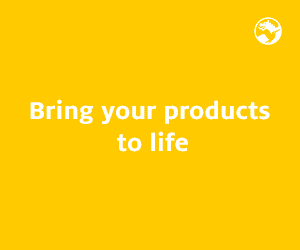The latest news, trends, analysis, interviews and podcasts from the global food and beverage industry
IBWA, the International Bottled Water Association, recently released a statement on the current bisphenol A (BPA) situation.
Recent media stories and a statement issued by the National Toxicology Program (NTP) have raised questions about the safety of polycarbonate plastic bottles due to the presence of a substance known as bisphenol A.
Polycarbonate plastic is used in a wide variety of consumer products, including food and drink containers. Many three- and five-gallon bottled water containers are made of polycarbonate plastic and consumers can remain confident about the safety of these products.
Bottled water is comprehensively regulated as a food product by the US Food and Drug Administration (FDA). Plastic food and beverage containers, including polycarbonate plastic made with BPA, must meet or exceed all FDA requirements.
FDA clears all food-contact plastics for their intended use based on migration and safety data. The clearance process includes stringent requirements for estimating the levels at which such materials may transfer to the diet.
FDA's safety criteria require extensive toxicity testing for any substance that may be ingested at more than negligible levels. This means FDA has affirmatively determined that, when cleared, plastics are used as intended in food-contact applications, the nature and amount of substances that may migrate, if any, are safe.
Polycarbonate plastic has been the material of choice for food and beverage product containers for nearly 50 years because it's lightweight, highly shatter-resistant and transparent. During that time, many studies have been conducted to assess the potential for trace levels of BPA to migrate from polycarbonate bottles into foods or beverages.
The conclusions from those studies and comprehensive safety evaluations by government bodies worldwide are that polycarbonate bottles are safe for consumer use.
The 14 April 2008 http://cerhr.niehs.nih.gov/chemicals/bisphenol/BPADraftBriefVF\_04\_14\_08.pdf " href="http://cerhr.niehs.nih.gov/chemicals/bisphenol/BPADraftBriefVF\_04\_14_08.pdf%20">NTP Draft Brief on BPA confirms that there are no serious or high-level concerns for adverse effects of BPA on human reproduction and development.
Steven G Hentges, PhD, of the <1>, states that the “findings in NTP’s draft report provide reassurance that consumers can continue to use products made from bisphenol A. Importantly, this conclusion has been affirmed by scientific and government bodies worldwide.”
The NTP Draft Brief confirms that human exposure to BPA is extremely low and noted no direct evidence in humans that exposure to BPA adversely affects reproduction or development. The limited evidence for effects in laboratory animals at low doses primarily highlights opportunities for additional research to better understand whether these findings are of any significance to human health.
On 18 April 2008, the Canadian Minister of Health confirmed the safety of most consumer products made from polycarbonate plastic, including reusable water bottles. The Minister announced that Health Canada (similar to the FDA in the US) completed an extensive safety review of BPA and concluded that most products made from polycarbonate plastic are safe.
However, Health Canada issued concerns about the potential risk of baby bottles made from polycarbonate plastic. As a result, they have proposed a ban on baby bottles made form this substance. IBWA welcomes the scientific rigor of Health Canada’s safety review, which confirms the safety of reusable polycarbonate water bottles.
For more information on this issue, visit the American Chemistry Council’s website at <<2>">www.factsonplastic.com]<2> or <<3>">www.bisphenol-a.org]<3>
<1>: http://www.americanchemistry.com/s_plastics/doc.asp?CID=1106&DID=7941 <2>: http://www.factsonplastic.com <3>: http://www.bisphenol-a.org







.jpg)